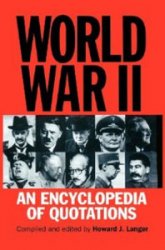Innocent was the first pope to refer to his office as the "Vicar of Christ"—a title, meaning that the pope was Christ's direct representative on Earth, that all subsequent popes have Urban II, most noted for starting the First Crusade in 1095, assumed the position of pope a few years after Gregory VII. While Gregory had been perhaps the most important pope of the Middle Ages, his troubles with Emperor Henry IV (see dual entry with Gregory VII)—troubles Urban inherited—had left Rome a heap of smoking rubble. Therefore Urban wisely chose to stay away from the city, home of the papacy, and spend much of his time as pope traveling through Catholic realms.
Gregory had come from poverty, but Urban, born Odo in France, came from nobility. Perhaps his noble upbringing, and the fact that he had not had to fight for everything in life, taught him to be a bit more accommodating toward rivals: unlike
Gregory, he knew when to give in, and often made concessions to powerful French leaders.
Urban was the first pope to model the papal government on that of a European monarchy; thenceforth, and up to the present day, the center of papal power would resemble a royal court in function. Heavily influenced by the monastic system at Cluny, where as a young man he had developed a passion for reform, he set about changing the church's finances. Also, like popes before and since, he became heavily involved with European political affairs.
He arranged a marriage between two supporters, Matilda of Tuscany (see box in Gregory VII and Henry IV entry) and Count Welf of Bavaria; and though the mar-
Used. It was just one of the many extravagant claims Innocent made for the papacy.
Innocent believed that the popes, "seated on the throne of dignity... judge in justice even the kings themselves." He participated in a seemingly endless series of intrigues with political leaders of Europe, promoting the career of Frederick II (see Holy Roman Emperors entry) as Holy Roman emperor and tangling with King John of England (see box in Eleanor of Aquitaine entry).
Angered by John's refusal to pay him what he considered his fair share of England's finances, Innocent placed England under what was called the interdict in 1208. For six years, until John relented, all religious services in the country were forbidden. Later Innocent did the same thing to the
Riage ended badly when Welf learned that Matilda intended to leave her inheritance to the church and not to him, Urban was able to use both of them against his archenemy, Henry IV. In contrast to Henry, there were a number of European leaders who accepted Urban's leadership unquestioningly: not only Matilda, but Henry's son Conrad, a number of Norman rulers, and the kings of Spain.
The latter were engaged in a war to take their land from the Muslims, a war from which El Cid (see entry) was to emerge the most noted hero. Perhaps it was from this conflict that Urban first hatched the idea of the Crusades. Whatever the case, when Byzantium's Alexis I Comnenus—father of Anna Comnena (see Historians entry)—sent him a request for a
Few troops to help battle the Turks, Urban began to conceive of a vast "holy war" to seize Palestine from Muslim hands.
Urban announced the idea at the Council of Clermont in France in 1095, where he made a stirring and memorable speech. This would ultimately lead to some two centuries of fighting, but none of the Crusades was destined to be as successful (from the viewpoint of the Europeans, that is) as the first. It ended in 1098 with the capture of Jerusalem and three other "crusader states" in what is now Israel, Lebanon, and Syria.
Ironically, Urban died two weeks before Jerusalem's capture. He had lived to see his old foe Henry punished, however, by being denied participation in the crusade.
Powerful King Philip II Augustus of France. Thus he proved that although he did not command armies as large as those of Europe's monarchs, he still ruled their people's hearts and minds, and could undermine a king whenever he chose.




 World History
World History









